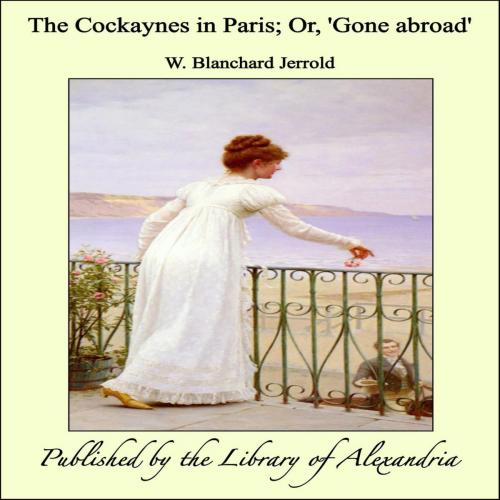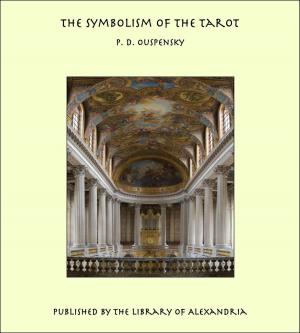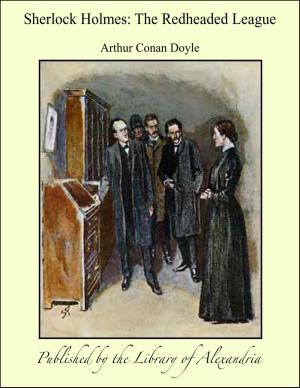| Author: | W. Blanchard Jerrold | ISBN: | 9781465561701 |
| Publisher: | Library of Alexandria | Publication: | July 29, 2009 |
| Imprint: | Library of Alexandria | Language: | English |
| Author: | W. Blanchard Jerrold |
| ISBN: | 9781465561701 |
| Publisher: | Library of Alexandria |
| Publication: | July 29, 2009 |
| Imprint: | Library of Alexandria |
| Language: | English |
The story of the Cockaynes was written some years ago,—in the days when Paris was at her best and brightest; and the English quarter was crowded; and the Emperor was at St. Cloud; and France appeared destined to become the wealthiest and strongest country in the world. Where the Cockaynes carried their guide-books and opera-glasses, and fell into raptures at every footstep, there are dismal ruins now. The Vendôme Column is a stump, wreathed with a gigantic immortelle, and capped with the tri-color. The Hall of the Marshals is a black hole. Those noble rooms in which the first magistrate of the city of Boulevards gave welcome to crowds of English guests, are destroyed. In the name of Liberty some of the most precious art-work of modern days has been fired. The Communists' defiling fingers have passed over the canvas of Ingrès. Auber and Dumas have gone from the scene in the saddest hour of their country's history. The Anglo-French alliance—that surest rock of enduring peace—has been rent asunder, through the timorous hesitation of English ministers, and the hardly disguised Bourbon sympathies of English society. We are not welcome now in Paris, as we were when I followed in the wake of the prying Cockaynes. My old concierge is very cold in his greeting, and carries my valise to my rooms sulkily. Jerome, my particular waiter at the Grand Café, no longer deigns to discuss the news of the day with me. Good Monsieur Giraudet, who could suggest the happiest little menus, when I went to his admirable restaurant, and who kept the Rappel for me, now bows silently and sends an underling to see what the Englishman requires. It is a sad, and a woful change; and one of ominous import for our children. Most woful to those of my countrymen who, like the reader's humble servant, have passed a happy half-score of years in the delightful society and the incomparable capital of the French people. Rue de Rome, Paris
The story of the Cockaynes was written some years ago,—in the days when Paris was at her best and brightest; and the English quarter was crowded; and the Emperor was at St. Cloud; and France appeared destined to become the wealthiest and strongest country in the world. Where the Cockaynes carried their guide-books and opera-glasses, and fell into raptures at every footstep, there are dismal ruins now. The Vendôme Column is a stump, wreathed with a gigantic immortelle, and capped with the tri-color. The Hall of the Marshals is a black hole. Those noble rooms in which the first magistrate of the city of Boulevards gave welcome to crowds of English guests, are destroyed. In the name of Liberty some of the most precious art-work of modern days has been fired. The Communists' defiling fingers have passed over the canvas of Ingrès. Auber and Dumas have gone from the scene in the saddest hour of their country's history. The Anglo-French alliance—that surest rock of enduring peace—has been rent asunder, through the timorous hesitation of English ministers, and the hardly disguised Bourbon sympathies of English society. We are not welcome now in Paris, as we were when I followed in the wake of the prying Cockaynes. My old concierge is very cold in his greeting, and carries my valise to my rooms sulkily. Jerome, my particular waiter at the Grand Café, no longer deigns to discuss the news of the day with me. Good Monsieur Giraudet, who could suggest the happiest little menus, when I went to his admirable restaurant, and who kept the Rappel for me, now bows silently and sends an underling to see what the Englishman requires. It is a sad, and a woful change; and one of ominous import for our children. Most woful to those of my countrymen who, like the reader's humble servant, have passed a happy half-score of years in the delightful society and the incomparable capital of the French people. Rue de Rome, Paris















